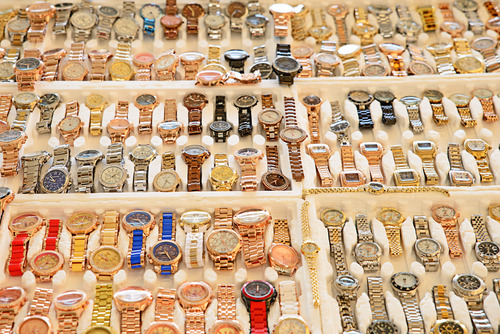By Alicia Fiorletta, Senior Editor

Be honest: How many times have you seen a friend, family member or total stranger carrying a knockoff handbag and didn’t know whether it was real or fake? Even better, how many times have you purchased a knockoff because you thought no one would question whether it was authentic or not.
Well, it’s sad to say the majority of Americans are right there with you. According to new research from TrueFacet an online luxury marketplace for buyers and sellers, 84% of U.S. consumers can’t tell the difference between knockoff and authentic luxury jewelry. More then one third (36%) of respondents even said they’d be willing to purchase a pre-owned luxury item without proof of authenticity.
This, in my opinion, is a dilemma for many parties, especially the consumer and the luxury brand being copied. Counterfeit goods currently account for about 10% of worldwide trade, or $500 billion annually, according to the World Customs Organization.
Some interesting findings bubble to the top when data is broken down by the age and gender of respondents. For example, Millennials apparently are the most knowledgeable about the overall value of a luxury item. Consumers over 54 years old, however, weren’t so savvy. However, the older consumers get, the more they value and appreciate having authentic jewelry. In fact, 67% of respondents 55 years and older said a certificate of authenticity was a crucial factor in their decision to purchase a pre-owned luxury item; only 43% of Millennials felt the same way.
When looking at gender, women, overall, are better at deciphering counterfeit and authentic jewelry than men (18% vs. 13%). However, men are better at knowing the difference between real and counterfeit watches than woman (19% vs. 10%).
“When shopping for luxury, it is extremely important to know the right questions to ask before making a purchase,” said Tirath Kamdar, Founder and CEO of TrueFacet. “With counterfeit products sneaking their way into some of the most heavily visited online shops like Amazon and eBay, being able to properly identify any red flags is not as easy as the average consumer may think. Demanding a certificate of authentication with every purchase and a money back guarantee should be a common practice with consumers, but in reality such requests are shockingly being overlooked.”






